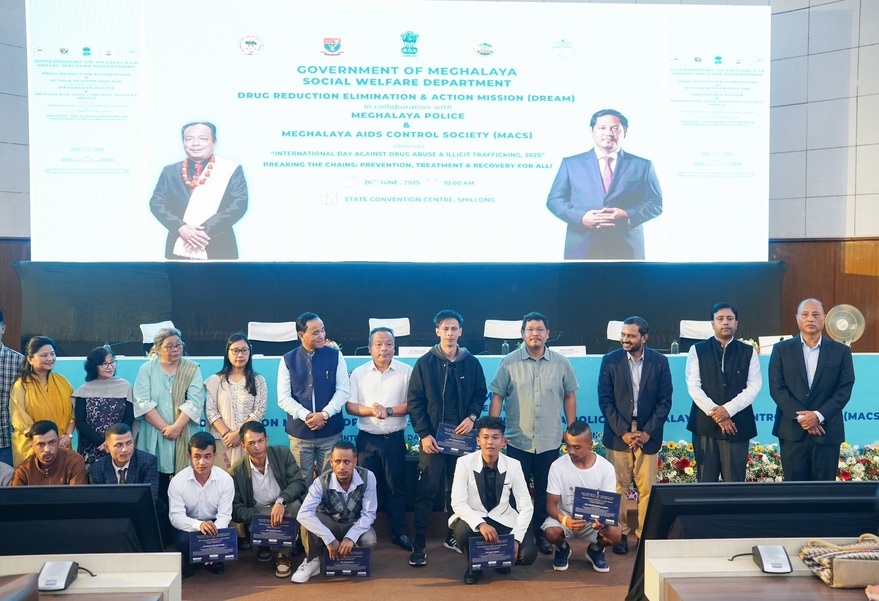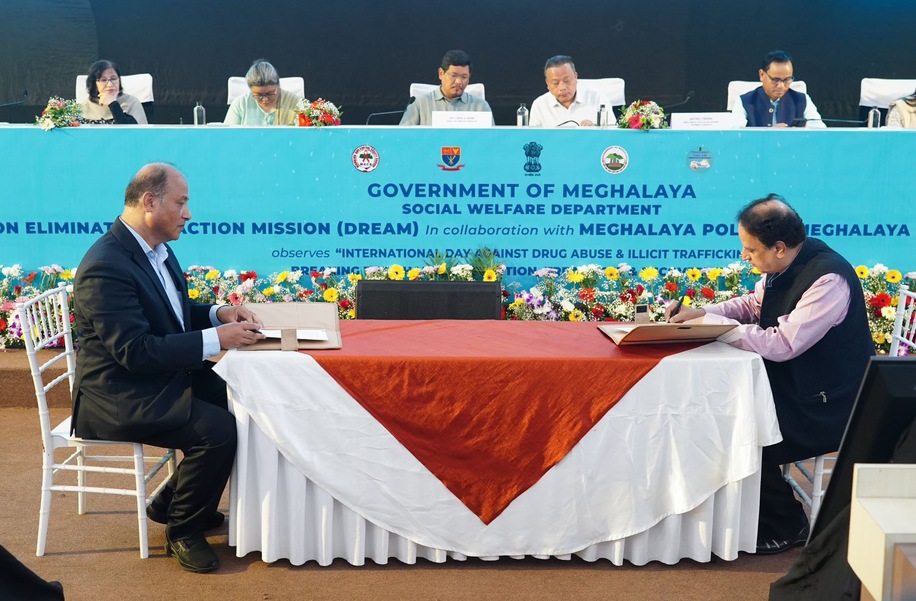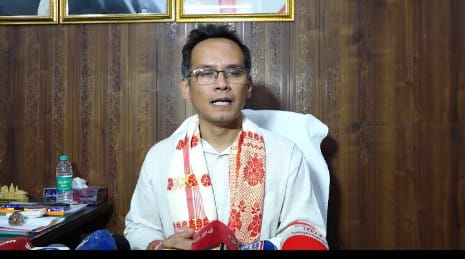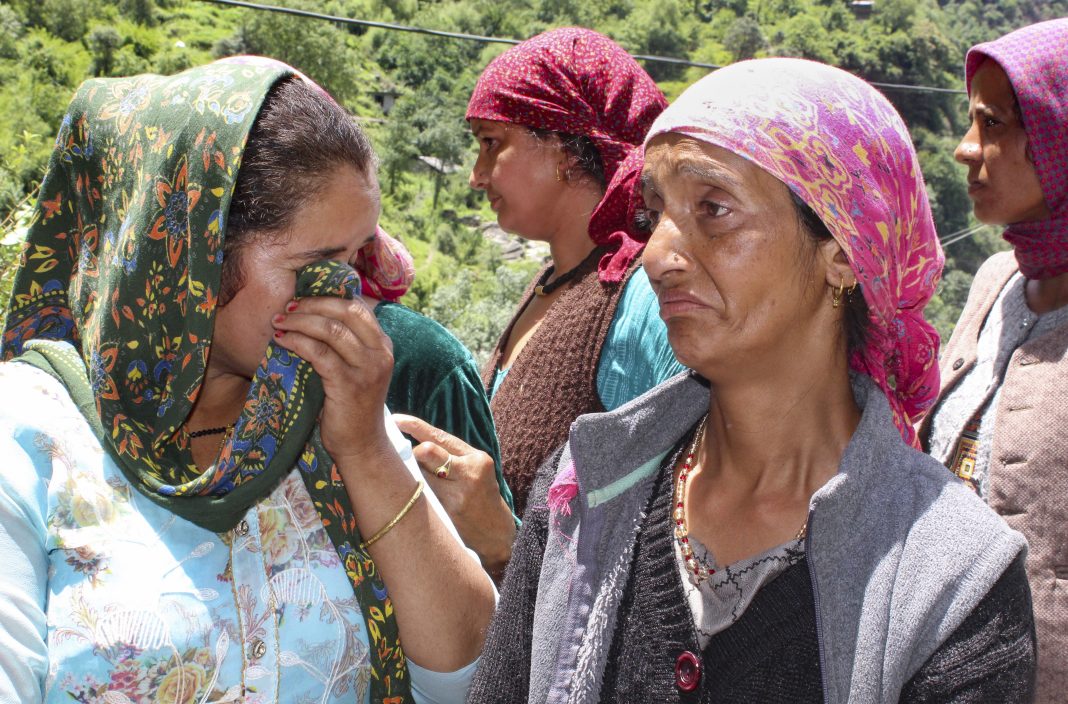Shillong, June 26: Leading from the front with a powerful display of resolve, Chief Minister Conrad K Sangma on Thursday outlined a comprehensive roadmap to combat the menace of drug abuse that is plaguing the state during Meghalaya’s observance of the International Day Against Drug Abuse and Illicit Trafficking at Shillong.
The special event that was organized by the state’s Social Welfare Department in collaboration with Meghalaya Police, Meghalaya AIDS Control Society, and the Drug Reduction, Elimination and Action Mission (DREAM), rallied leaders, frontline workers, and communities under the theme “Breaking the Chains: Prevention, Treatment and Recovery for All.”

Giving his keynote address, the chief minister put forward a visionary roadmap to combat the drug crisis, laying emphasis on a multi-faceted approach that would not only revolve around law enforcement but also focus on holistic recovery, involvement of health systems, education, engagement with the youth and building of strong community partnerships.
“This is not just a policing issue—it’s a public health, social, and developmental challenge,” he declared. “Through DREAM, we are uniting as a state and as a people to protect our youth, our greatest asset, from the scourge of drugs.”
Highlighting the state’s achievements in law enforcement, Conrad Sangma revealed that Meghalaya Police have seized narcotics worth over ₹1,000 crores in the past three years, including heroin, ganja, opium, and crystal meth.
With 1,031 drug cases filed and 422 charge-sheeted, specialized units like the Anti-Narcotics Task Force (ANTF) are being bolstered with advanced tools such as drug scanners and canine squads, the chief minister announced.
Calling for collective action, Sangma urged educators, community leaders, NGOs, and families to come forward with the government in the fight to eradicate this social evil. “Let us not point fingers but join hands,” said the chief minister as he lead the gathering in a pledge under the Nasha Mukt Bharat Abhiyan to reinforce the state’s commitment to a drug-free future.
The government’s flagship DREAM initiative, backed by a ₹50 crore investment over five years, focuses on rehabilitation through partnerships with faith-based and community-led organizations, with additional funds to be mobilized when needed.
As part of DREAM’s community based strategy, a new Memorandum of Understanding with the Society for Promotion of Youth and Masses (SPYM) was also signed by his government to develop tailored toolkits and training for schools, communities, and NGOs to foster a drug-resilient society.
Social Welfare Minister Paul Lyngdoh, who was the guest of honour at the event, praised the ANTF’s dedicated efforts and the introduction of preventive-detention provisions under the NDPS Act for repeat traffickers. “We need every ward and every dorbar to become a nerve-centre of vigilance and compassion. This fight is not ‘us versus them’. It is ‘all of us versus drugs’.”
Invoking Meghalaya’s resilience, he referenced the historic rebuilding of the Pinewood Hotel after the 1897 earthquake, urging communities in vulnerable areas like Cantonment and Mawlai to unite in both enforcement and healing.

Consultant Psychiatrist Dr. Pakha Tesia provided a clinical perspective, describing addiction as a brain disorder requiring integrated care. “Medication stabilizes, but counselling, life skills, and family support complete recovery,” he said, advocating for early school interventions and expanded community rehab facilities.
A poignant highlight of the event was the testimony of Isaac Surong, a recovery champion who shared his journey from childhood substance use to heroin addiction and eventual redemption through faith and rehabilitation. His story moved the audience, with Chief Minister Conrad K Sangma noting, “Isaac’s courage is a beacon of hope. We will walk with him and others like him.”
The event honoured over 20 Recovery Champions and grassroots organizations, including Life Care Foundation and Japang NGO, for their work in prevention and rehabilitation. Winners of awareness initiatives like football tournaments and a Cycle Rally for Recovery were also felicitated, alongside musical performances and interactive sessions with youth and social workers.




